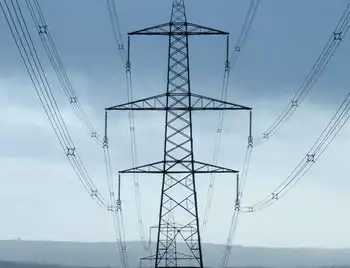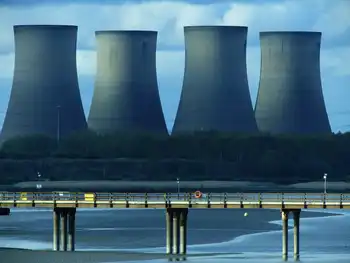Tory touts nuclear power
By Toronto Star
Protective Relay Training - Basic
Our customized live online or in‑person group training can be delivered to your staff at your location.

- Live Online
- 12 hours Instructor-led
- Group Training Available
In his strongest statement yet on nuclear power, Tory said a Conservative government would act faster than Premier Dalton McGuinty to bring more atomic plants on stream.
"Mr. McGuinty has dithered for four years," Tory told a crowd of 2,500 at a $1,000-a-plate fundraising dinner.
"We must meaningfully advance the process for new nuclear capacity right away."
The challenge facing Tory is that it takes about 10 years to complete environmental assessments and approvals, design and build a new nuclear generating plant.
Tory would not detail how many new nuclear generators he believes are needed, but added "it's going to be more than the two (the Liberals) indicated are necessary."
New reactors would "most likely" be built at existing nuclear plants, he added.
Tory also said he'd be willing to consider having private industry build any new plants instead of the Crown-owned Ontario Power Generation utility.
The Liberals have presided over the refurbishing of nuclear reactors at the Pickering and Bruce plants and are leaning toward more nuclear plants, but have yet to make a decision.
Ontario Power Generation's operations at Darlington on Lake Ontario and privately operated Bruce Power have applied to build new reactors.
However, Energy Minister Dwight Duncan said recently the Liberals are a year away from making a final decision on whether to go ahead – a decision that wouldn't come until after the Oct. 10 election.
Tory said he'd be happy if the nuclear issue becomes a key topic in the campaign. "They're afraid to tell the people the truth," he said of the Liberals.
"We need more nuclear... than they're saying we need."
The problem of global warming, caused by greenhouse gases, makes nuclear a "safe, reliable, affordable" option even though it is controversial for some.
"We cannot afford to pass the challenge on to our children and grandchildren," he told the crowd. "Our energy security, and thousands of jobs that depend on it, are far too important to play politics here."
Tory's nuclear position is sure to rile environmental groups, who have spoken out loudly about storage of nuclear waste that remains toxic for centuries, as is his push to put scrubbers on heavily polluting coal-fired generating stations. Scrubbers catch pollutants, but do not eliminate greenhouse gases.











